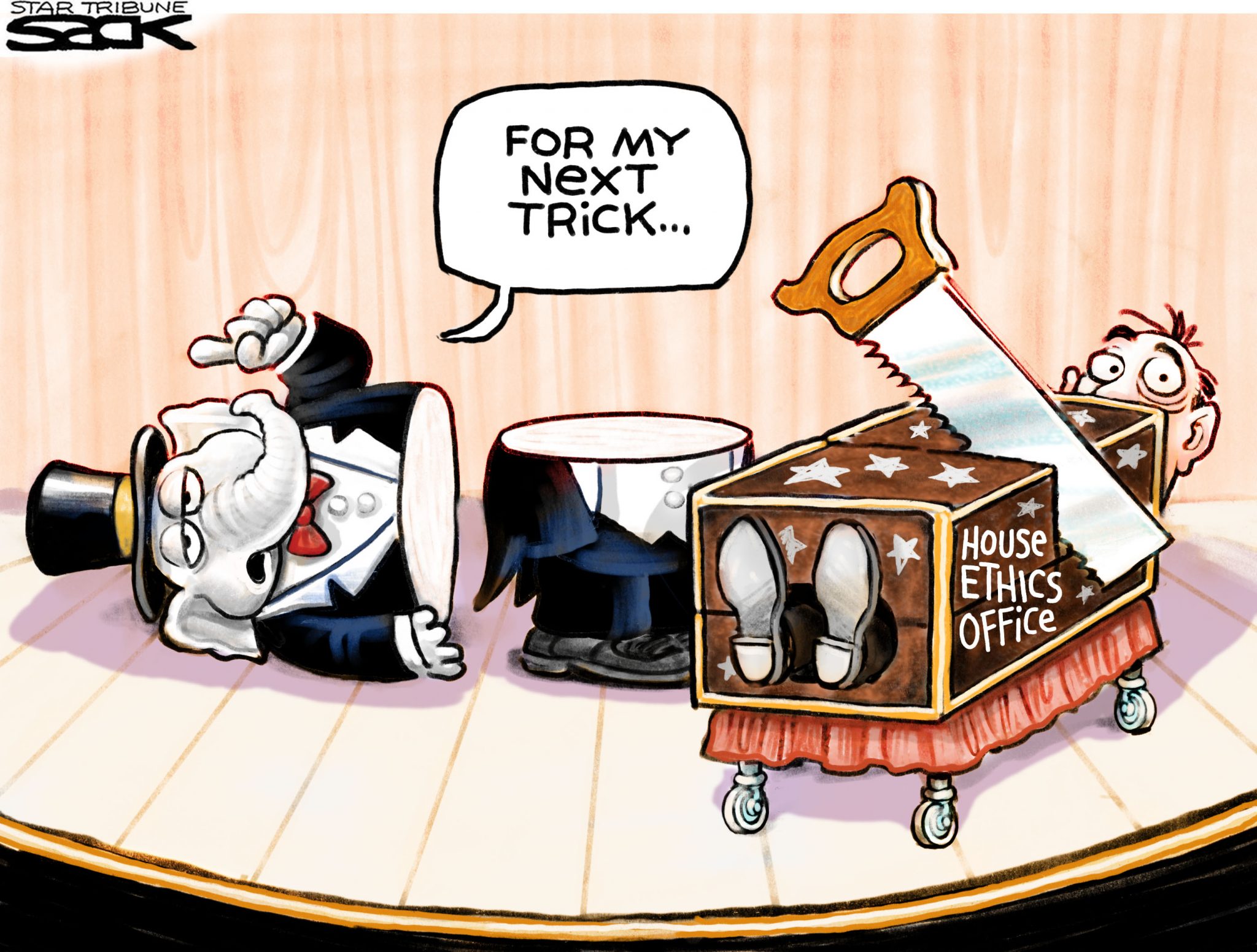BY DAVID PERRYMAN
 In a world that believes all is fair in war and peace and between two consenting adults, lawmakers often wonder why their honesty and integrity ranks dead last when compared to all other professions. Look no further than news coverage of state and federal legislative activities over the past couple of weeks.
In a world that believes all is fair in war and peace and between two consenting adults, lawmakers often wonder why their honesty and integrity ranks dead last when compared to all other professions. Look no further than news coverage of state and federal legislative activities over the past couple of weeks.
In Washington, the newly-elected Congress voted to undermine the independence and effectiveness of the Office of Congressional Ethics [OCE]. The OCE was created to clean up the “culture of corruption” in the U.S. Congress. It is governed by an eight-person board of directors, who are entirely private citizens and cannot serve as members of Congress or work for the federal government.
From its beginning in 2008, the OCE has effectively shed light on both Democratic and Republican breaches of ethical conduct in a manner that both protects the reputation of a falsely accused congressman and provides transparency when allegations have merit.
To open a 30-day inquiry into an allegation, the board of directors must first make a finding that there is a “reasonable cause to believe allegations.” At the end of the initial inquiry, the matter is closed unless the OCE board makes a finding of “probable cause to believe allegations.” If there is probable cause, a second phase review lasting no more than 59 days will be initiated.
At the conclusion of the second phase review, the matter will either be privately closed or a public report will be filed and the matter will be referred with recommendations to the House Ethics Committee.
According to watchdog groups, the media and organizations that push for openness and transparency in government, the process is working. The Sunlight Foundation stated, “More than anything else the Office of Congressional Ethics has helped to reveal to the public the patent absurdity of the self-policing oversight that members provide through the House Ethics Committee.”
It is no surprise that members of Congress who abhor personal accountability want the OCE to go away. By and large, Oklahoma congressmen are no different. Last week, with the exception of Frank Lucas, every member of the Oklahoma delegation voted to “gut” the Office of Congressional Ethics, including U.S. Rep. Jim Bridenstine, who the OCE investigated in 2015 because of an impermissible gift of nearly $14,000 in airfare, and U.S. Rep. Markwayne Mullin, who the OCE investigated in 2013 for endorsing services for an outside employer, appearing in commercials and receiving compensation for services in violation of federal law.
The state House of Representatives is also facing an ethical dilemma. In the midst of making a sexual harassment allegation against a legislator, a House staff member was fired and then filed a wrongful termination claim. Sometime prior to the legislator’s re-election the leadership of his party made a “confidential” agreement to use public funds to pay the former staff member and her attorney. After the election, the tax dollars totaling more than $44,000 were quietly paid.
An investigation is in order, but Oklahoma does not have a non-partisan Office of Legislative Ethics. Now is a good time to create one. Instead, the matter is being referred to a committee composed of legislators. While there will be six Republicans and three Democrats on the committee, in the interest of transparency, a legislative investigation would best be conducted by an outside group that is not composed of sitting legislators.
– David Perryman, a Chickasha Democrat, represents District 56 in the Oklahoma House








